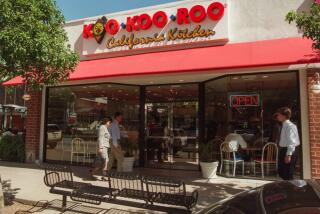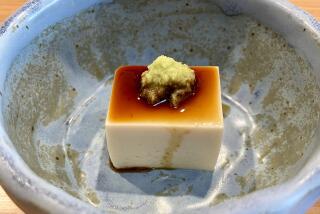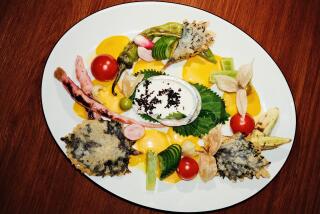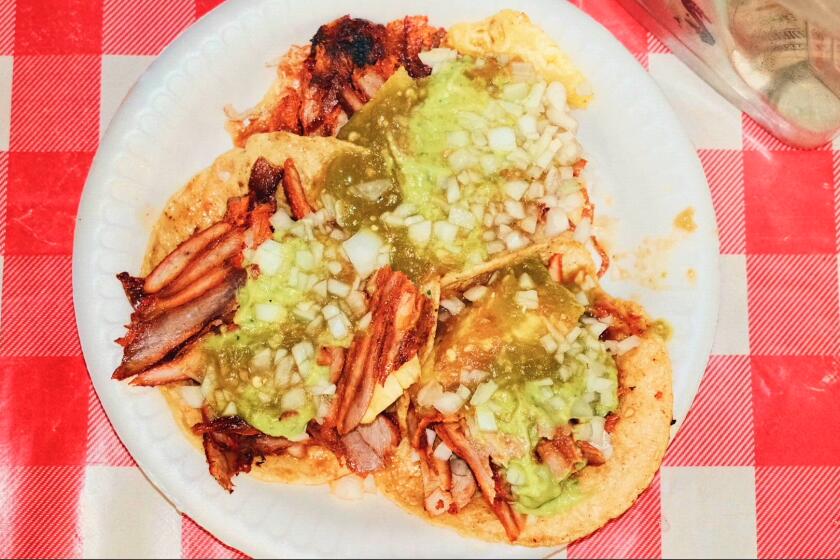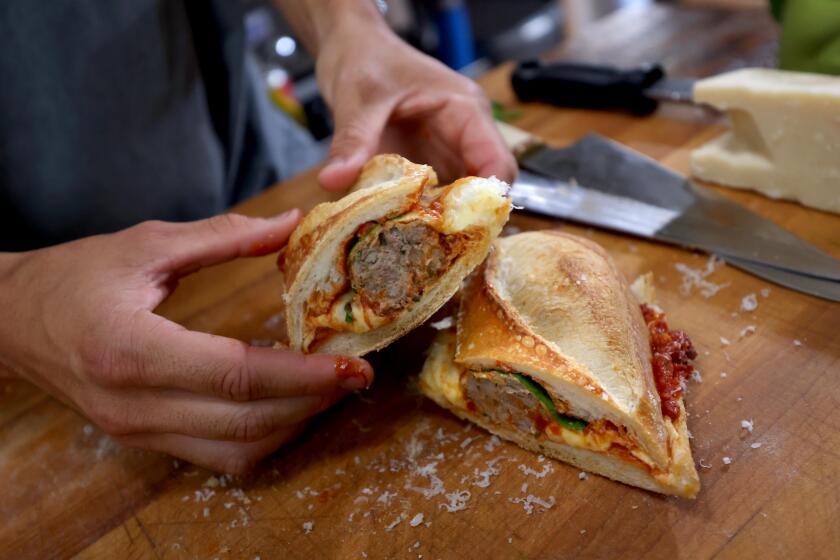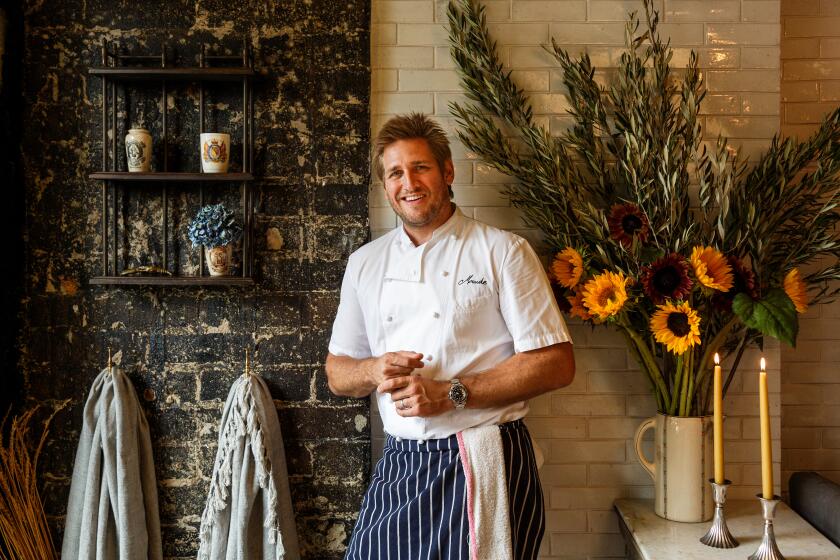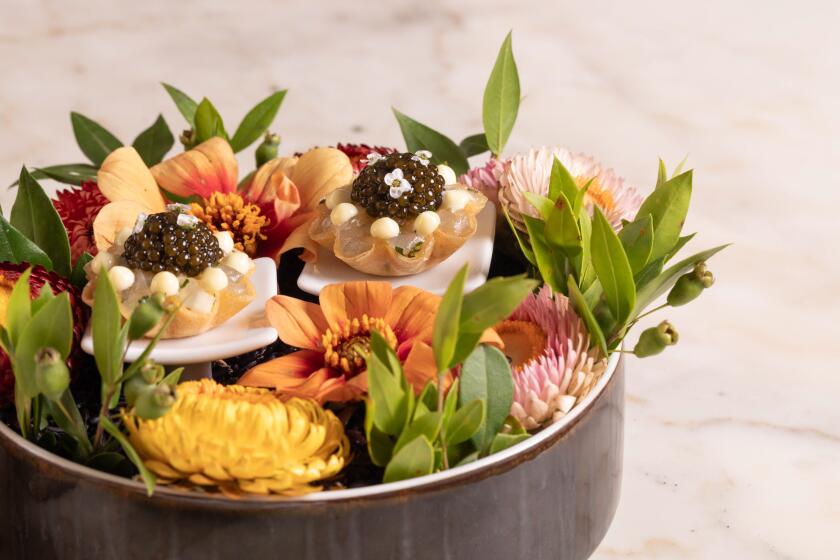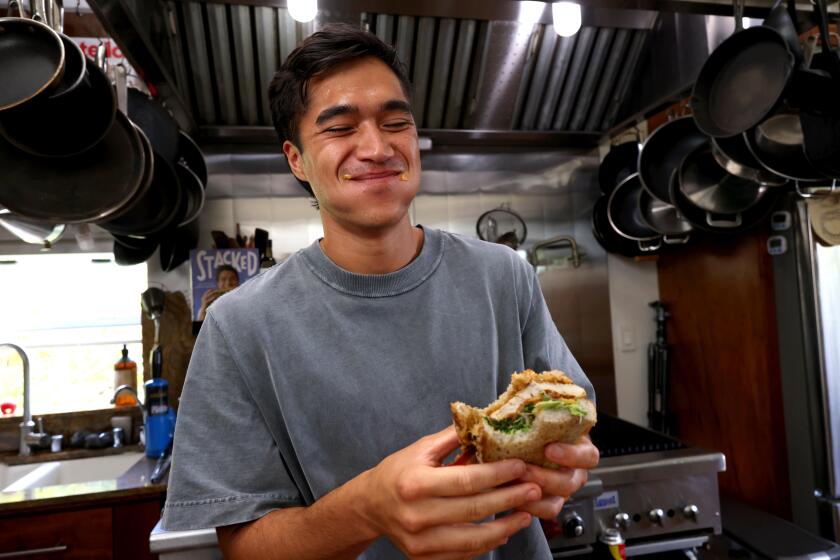The Find: Veronica’s Kitchen in Van Nuys
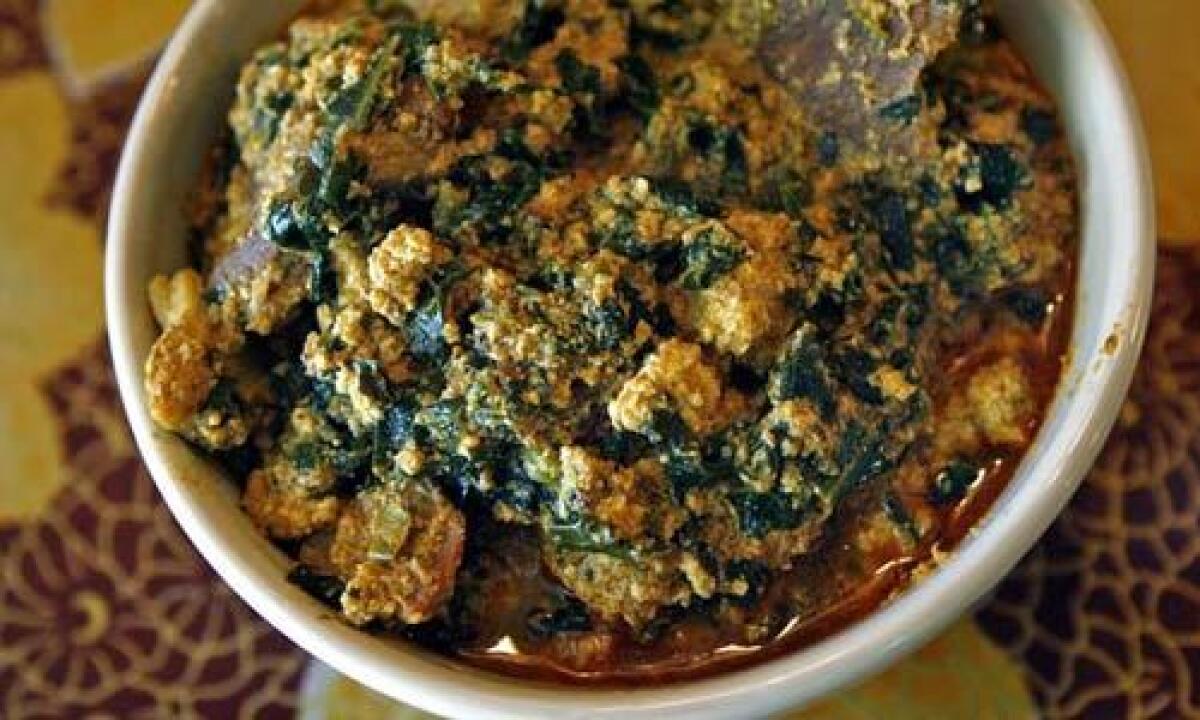
“Fufu Land!” blares the sign over Veronica’s Kitchen, a newly minted Nigerian place at the back of a mini-mall on busy Sherman Way in Van Nuys.
Fufu is West Africa’s staff of life. And like rice in Asia or bread in Europe, the doughy starch balls come in several varieties: smooth-pounded white yam, a slightly gooier cassava (tapioca) version called eba, or orbs of pounded rice. Fufu is the ideal partner for the perfume of palm fruit oil and aggressive habanero chiles that season Veronica’s Nigerian dishes.
Until Veronica Ogbeide Shoyinka opened this place about a month ago, you could always find her at the Veronica’s Kitchen in Inglewood that she’s owned since the mid-’90s. Impeccably turned out, she wears her trademark gele, the traditional Nigerian hair wrap that billows and swirls high on her head, spilling gracefully to her shoulders.
After college in Missouri and a stint as a social worker in New York, Shoyinka started her food career by supplying West African-style takeout meals to Nigerian cabbies who longed for the taste of home. But nowadays the distingué crowds gathered around platters of moi moi and pepper soup in her dining rooms are often related to music producing or to Nollywood -- Nigeria’s thriving film industry. (Who knew the country had the world’s third-largest film production?)
Lagos-style heat
Both restaurants have the air of cozy British tea rooms with their floral tablecloths and color-coordinated walls in sophisticated hues. But the bowls generously heaped with stew-like meat and vegetable “soups,” often seasoned with dried seafood, are straight out of the street-side chop houses of Lagos where the chile heat and funky dried-fish undernotes recall rural Thai cooking. Lagos, Nigeria’s largest city in the country’s humid southwest, is where Shoyinka was raised, and her food reflects its regional quiddities.
Service is always gracious and helpful, but meals proceed at a leisurely pace -- especially when the kitchen is rustling up huge orders for parties. While you wait, snack on chinchin -- nuggets of crunchy, sweet fried bread or the satay-style skewers of jerky-like chicken suya coated in pulverized peanuts and a cayenne-laced gingery seasoning. With these appetizers, the ginger beer or nonalcoholic palm wine called Pammy are swell accompaniments.
A few favorite combos: moi moi, the pâté-smooth chile-spiced loaf made from black-eyed peas accompanied with a tomatoey sauce that’s simply called “stew” and your choice of fufu or rice; jollof rice, a wonderfully savory, tomato-based pilaf with chicken stew or fried fish stew; any fufu with edikang ikong -- simmered seasoned greens including spinach, ugu (pumpkin leaves), the African green okazie and your choice of meat. Balance the flavors with dodo, ripe plantains fried to an unctuous, caramely sweetness.
At about $15 to $16 per order, the menu looks somewhat pricey, but these meals feed at least two.
Soyinka says her many vegetarian customers come in for jollof rice, moi moi and her vegetarian versions of edikang ikong or efo riro soups. She’s in the process of finalizing a longer vegetarian menu.
Mix and match
The restaurants’ menus can be a bit confusing until you get the gist. One page lists ingredients for meals in three columns -- the starches, the soups and the meats or beans. You organize your meal by matching up a choice from each column.
Say you get the egusi soup, a thick peppery mélange of crushed nut-like melon seeds and seasoned collard greens (West Africa’s most famous dish). You then select a protein component: chicken, beef, fresh fish, dried fish (very chewy), pungent goat meat or oxtail, which gets added to the bowl (there’s also a vegetarian version). And finally, choose any fufu or other starch.
You can eat fufu with a spoon, but try it the West African way by tearing off bite-size nuggets from the mass and rolling each into a ball with which you scoop up the highly seasoned egusi. You’ll be brought a bowl of warm water to wash your fingers as you eat. Welcome to Fufu Land.
More to Read
Eat your way across L.A.
Get our weekly Tasting Notes newsletter for reviews, news and more.
You may occasionally receive promotional content from the Los Angeles Times.
